The way their hands could mutate the strings
RIP Rick Froberg

Thank you for reading as always. Purchase a subscription to help keep this endeavor afloat if you can please and thank you.
Rick Froberg the incomparable guitarist, vocalist, and visual artist, best known for his work in punk and post-hardcore bands Hot Snakes, Drive Like Jehu, and Pitchfork, died over the weekend. He was fifty five years old.
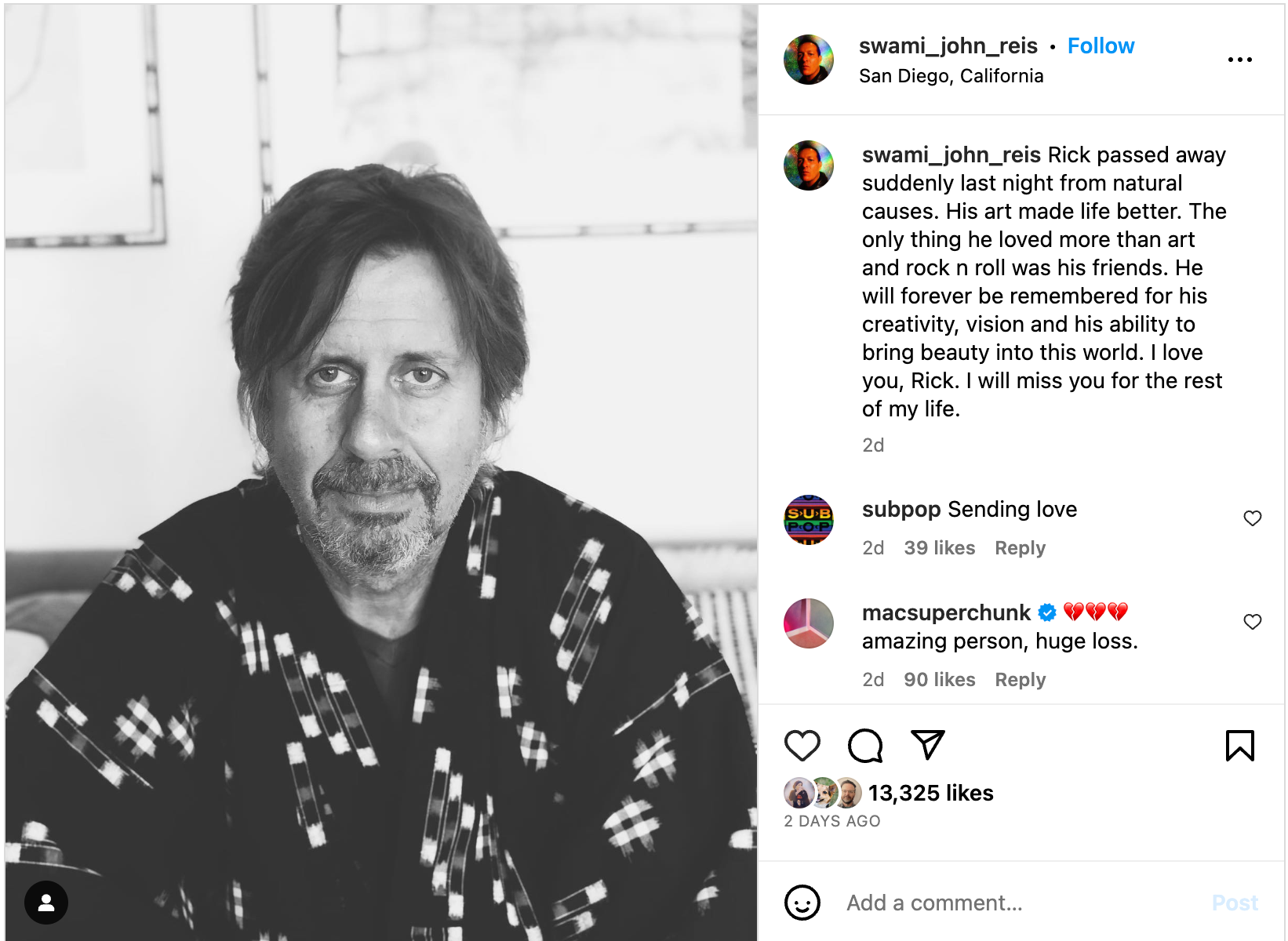
David Anthony joins us today to write about what Froberg's music meant to him and so many others.
Anthony previously wrote for Hell World about what it was like growing up in a funeral home.

Then after that for paying subscribers an essay and a poem (?) by me. One is about dealing with the wildfire smoke and one is about barbecues more or less.
If you missed the most recent Hell World it was about traffic fatalities and how everyone is driving like a maniac now. Also about how these right wing motherfuckers think they're clever trying to do the "we were happy to let you have some leeway but now you've gone too far" in terms of LGBTQ and abortion rights.
Listen to me: You are going to hear a lot of this sort of thing going forward if you aren't already inundated with it. We were ok with it when it was just gay marriage you wanted and so on. No! You fucking were not. I remember man I was there. We were all there! It was like eight years ago that gay marriage became the law of the land.
The right are doing the same thing when it comes to abortion as well. We were so reasonable. We very generously indulged your rights. And now you have forced us to take them away.
You can find that one here.
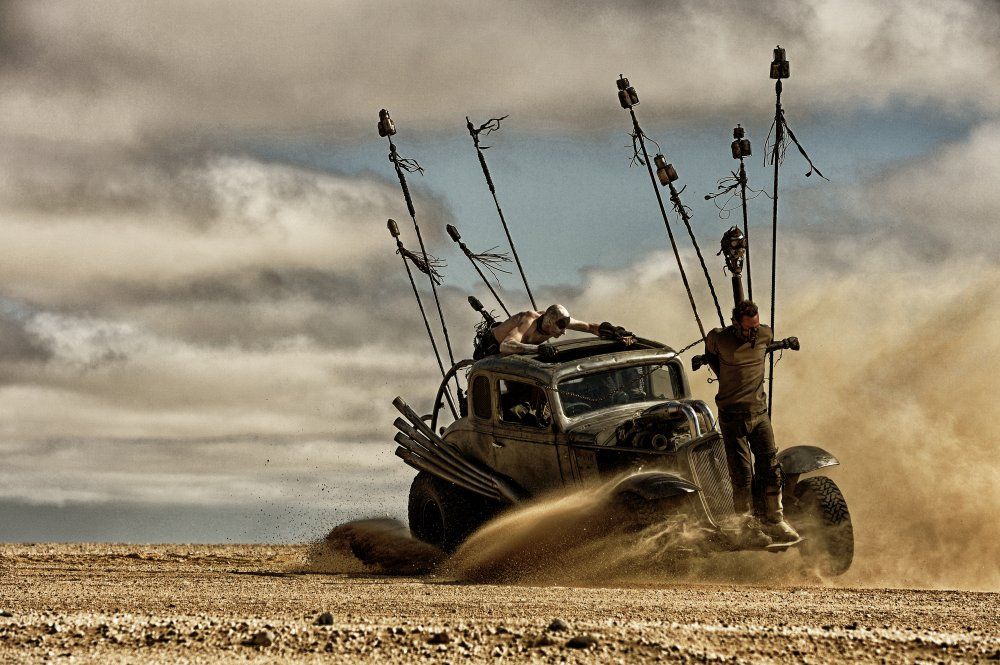
Another reminder that I'll be in New York on Friday for my book release party with this insanely nice and talented group of people. RSVP here please if you're coming.
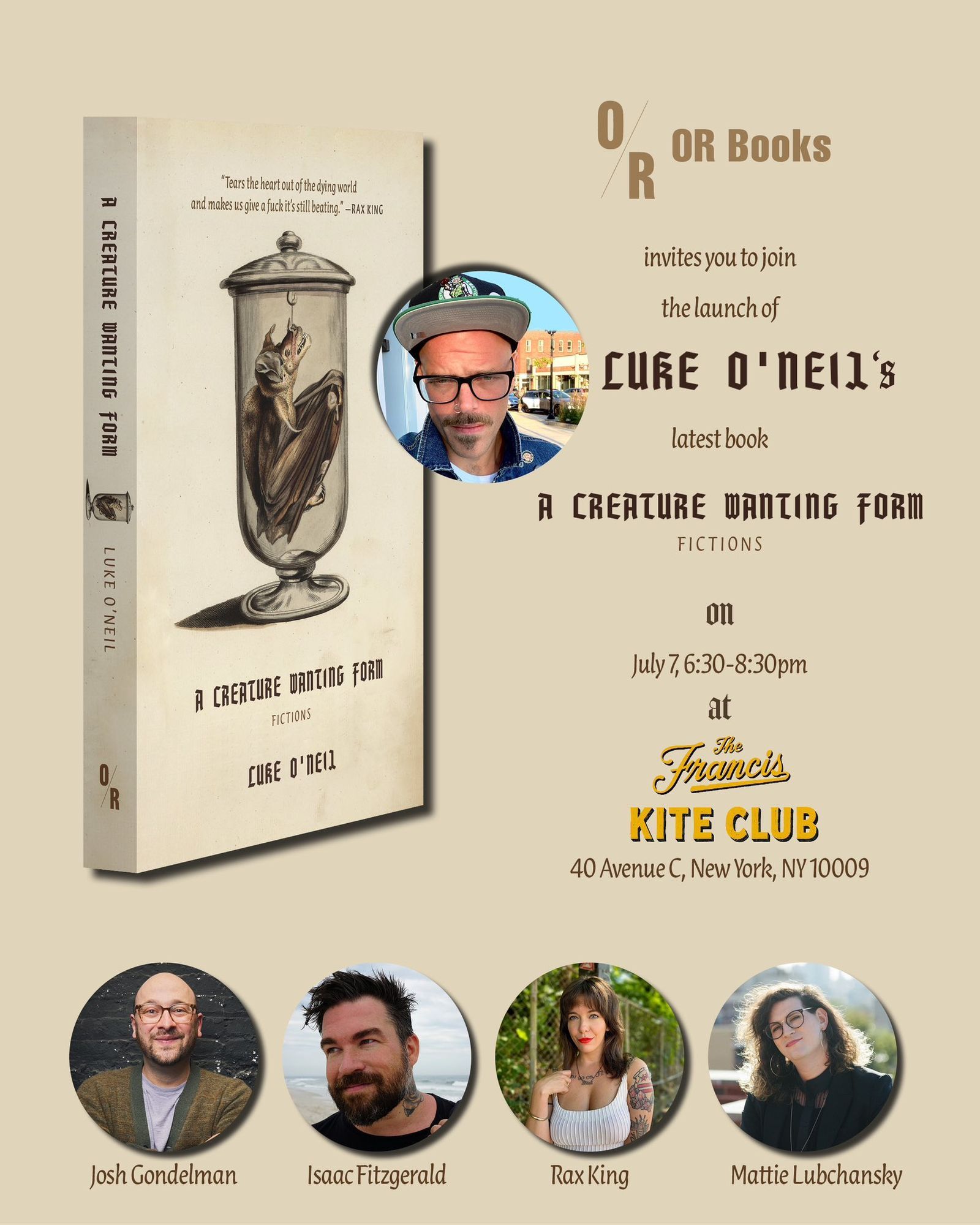
Other people seem to like the book!
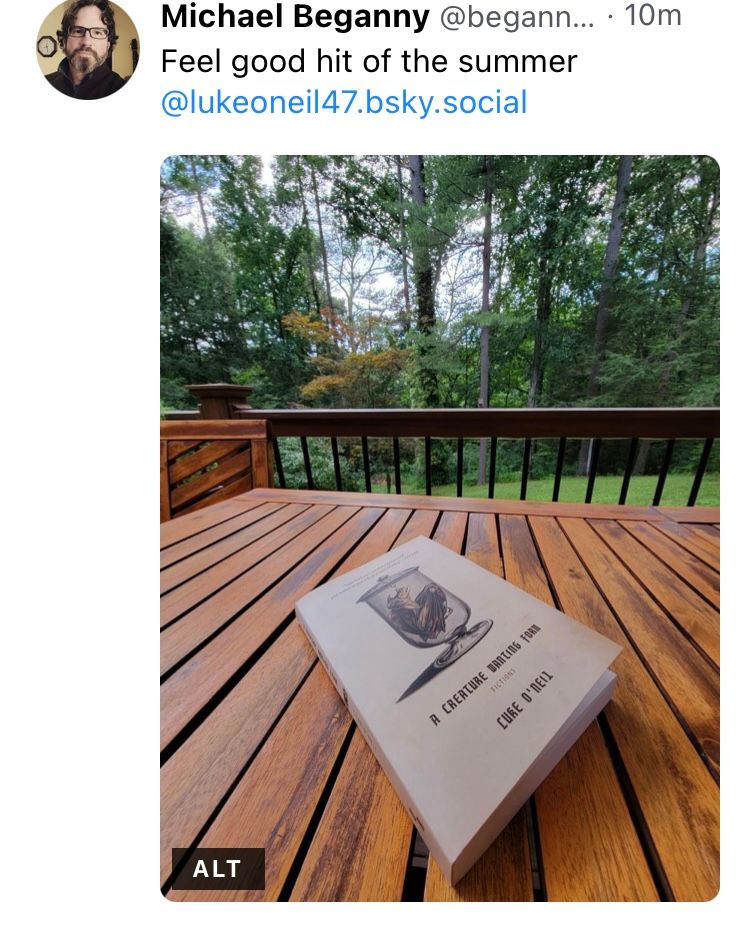
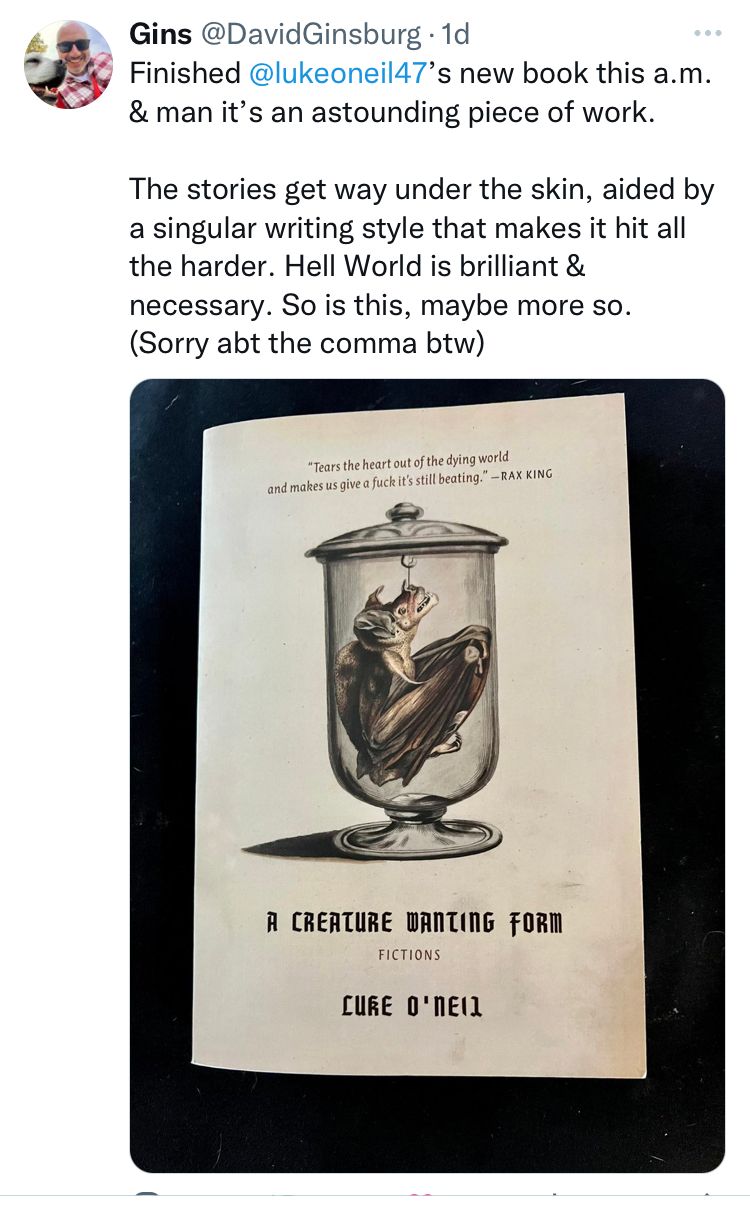
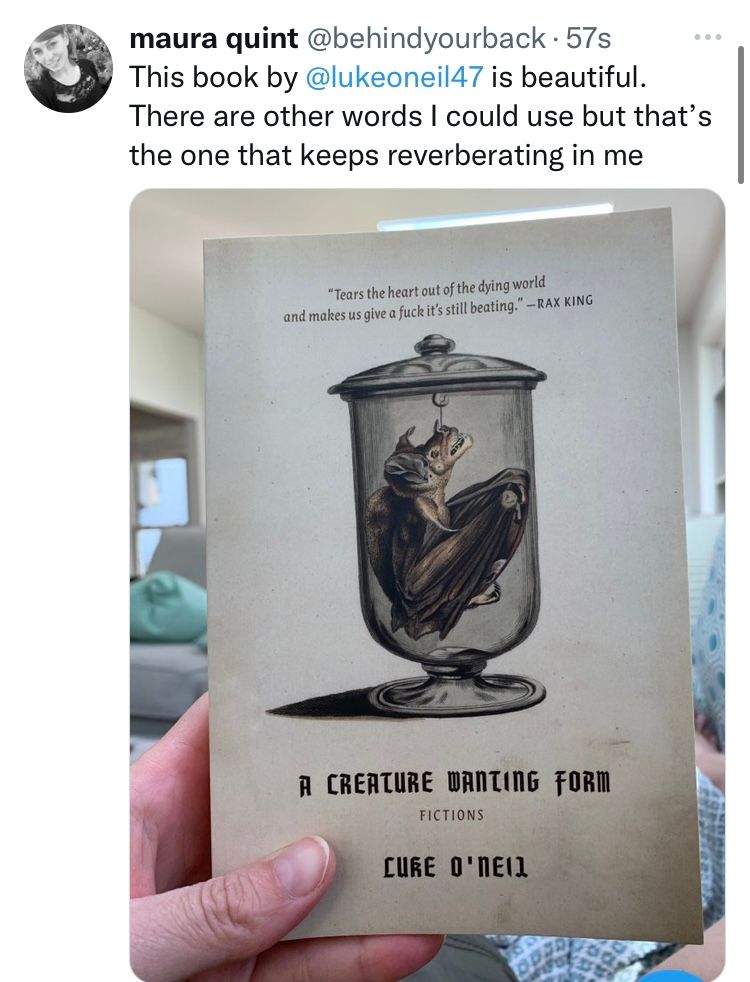
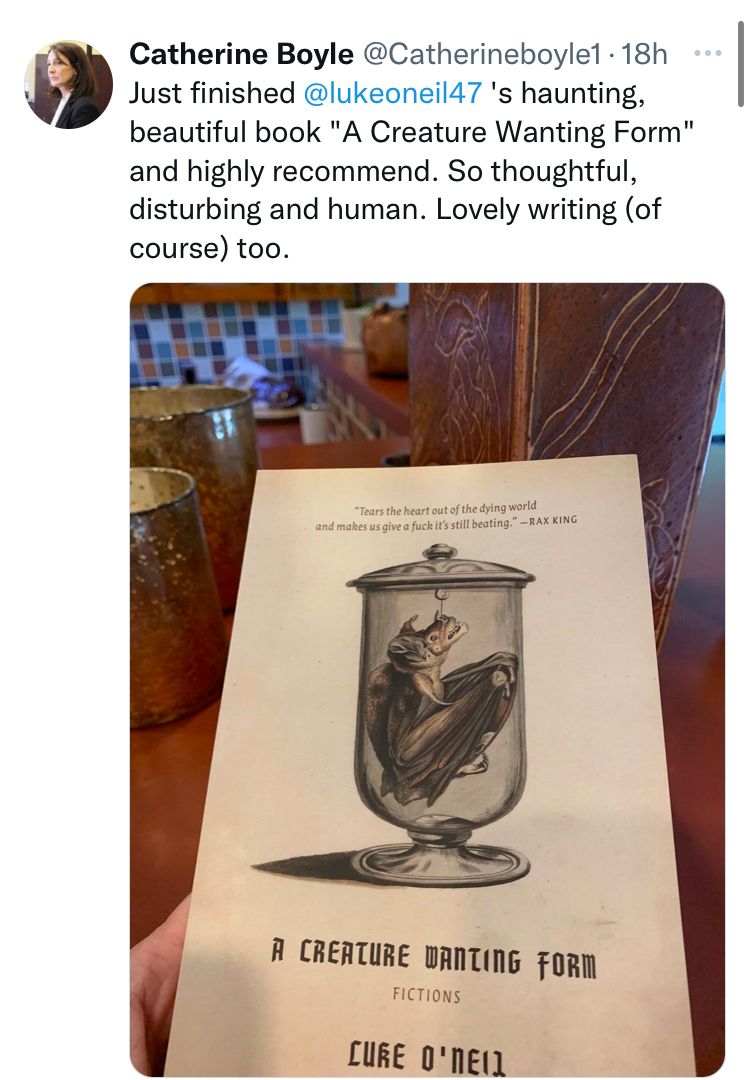
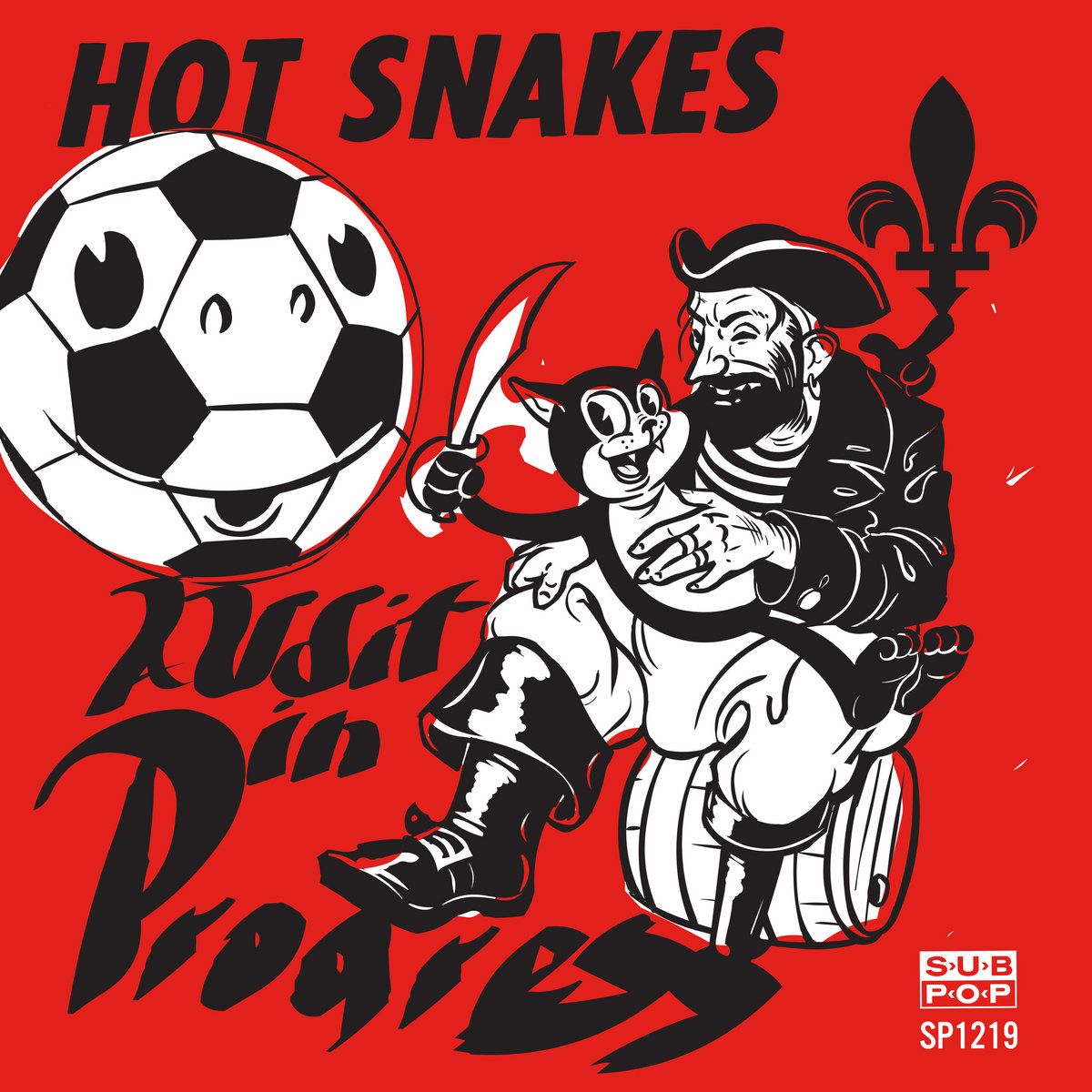
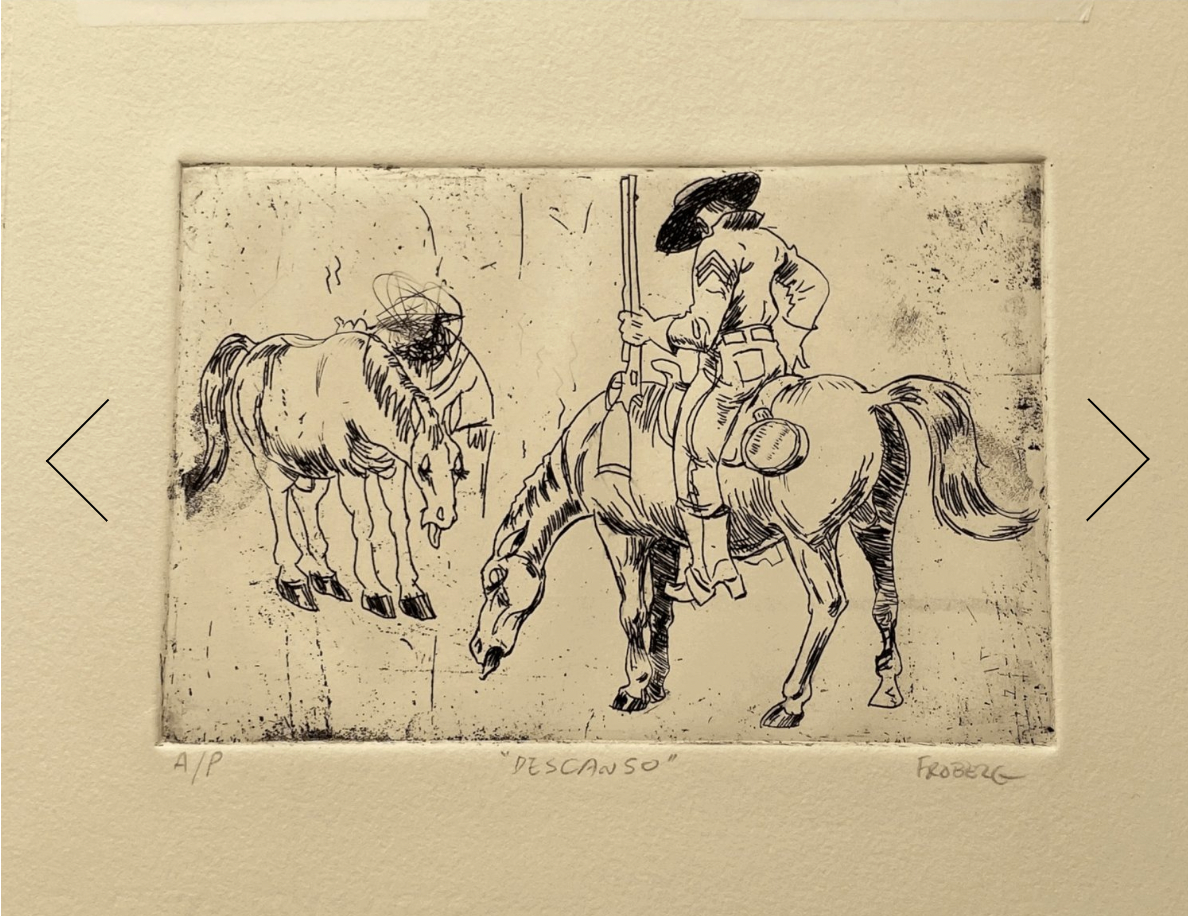
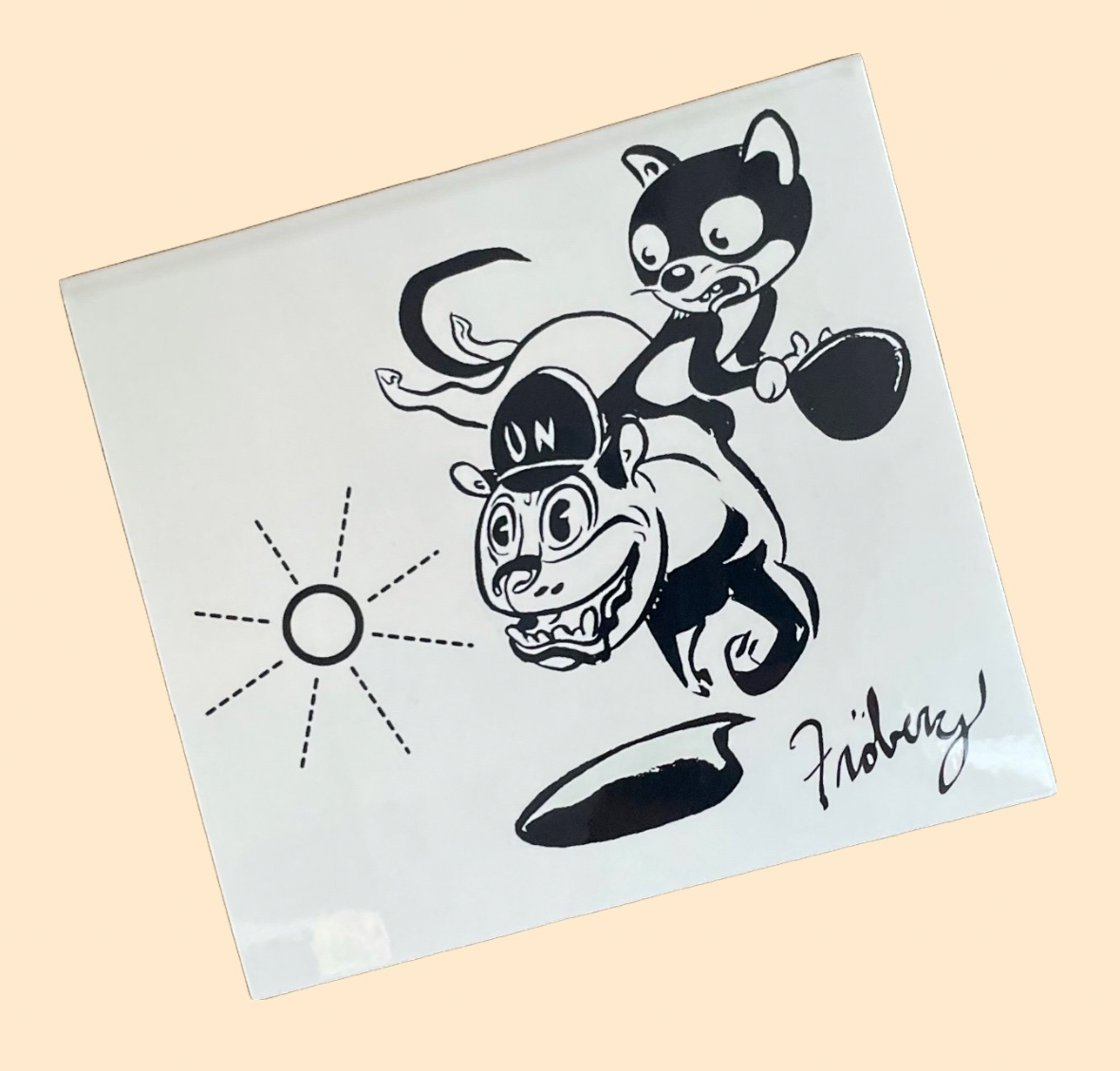
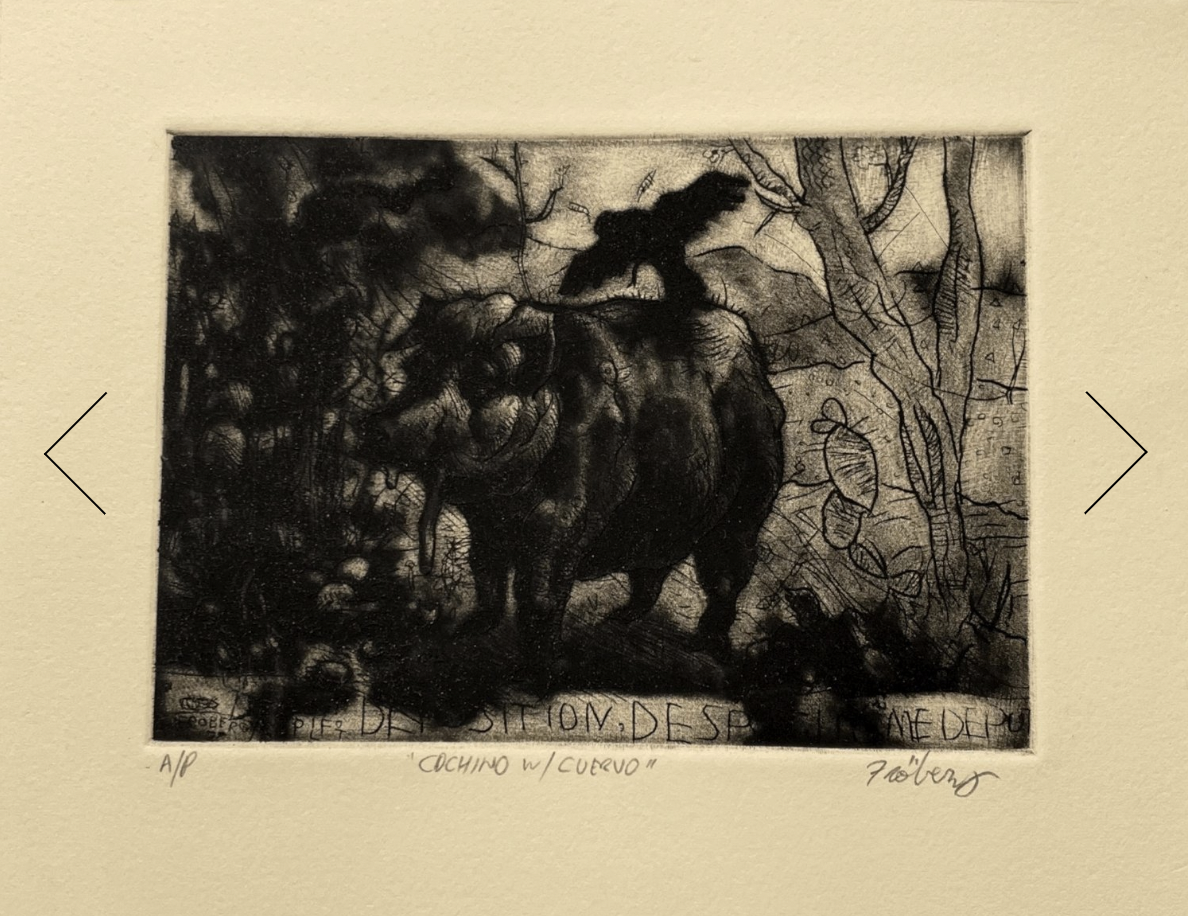
The way their hands could mutate the strings
by David Anthony
The challenge of describing Rick Froberg’s work is that, even at his most direct, he articulated thoughts and feelings in a way that only made sense to him. You’d catch his drift, but the full meaning was always open to interpretation. Like reading tea leaves and then saying with absolute certainty that you know what they mean. You may be close, but you’ll never be 100 percent correct.
Contemplating his band names alone – Drive Like Jehu, Hot Snakes – never mind his lyrics, it always felt like Froberg was handing you riddles and explaining them with lengthy, protracted analogies.
From Jehu’s Sinew:
Every last string and gut ripped apart and divvied up
My share, my share
My share, my share
Trash man, trash man
My share, my share
That was the magic of Rick Froberg. You knew what he meant because you felt it, you sensed it, but explaining it left you grasping. What came so innately to him was novel to the rest of us.
On June 30, 2023, Rick Froberg died. The announcement came a day later, delivered to the world by John Reis, the only person suitable to break such terrible news. As a creative pair, Froberg and Reis were indie rock’s greatest guitar duo. You could argue that other guitarists wrote better hooks, catchier choruses, more ornate solos, but no one could ever deny that, together, Froberg and Reis were capable of feats few musicians ever were. It’s impossible to write about Froberg without Reis, because even when they were in bands without the other, you could still hear how the other would slip right into their role if the opportunity ever arose. They filled in each other’s gaps, taking the open spaces presented, then weaving their riffs together until they became a larger whole that couldn’t possibly be untangled.
When you listen to Drive Like Jehu or Hot Snakes, what you hear is the sound of people who truly believed in rock and roll as the most impactful form of artistic expression. They worked in no singular mode, which is why everything they did felt innately theirs. In many ways, Froberg and Reis felt like the last two guys who never felt too cool to bow at the altar of rock and roll. They may have played a wildly distorted version of it, but they weren’t ashamed or shy about the fact that they were rock and roll devotees from the first time they picked up a guitar and would be until the very end.
Where other two guitar bands often lock into fixed positions of rhythm or lead, Froberg and Reis blurred such designations. One player’s chords enveloped the other, creating washes of borderline psychedelia purely through the way their hands could mutate the strings. Darker chord progressions were transformed into anthemic, cathartic sing-alongs, and major chord harmonies would twist and linger a little too long, becoming discordant blasts of fury through their sheer force of will. Even in Hot Snakes, when they’d viciously down-stroke as if they were both playing the role of Johnny Ramone, they never kept things too straight. Every note had a sinister edge, one that expressed some mixture of contempt, anger, and ambivalence, all mixed into a concoction they could only call their own.
It’s for these reasons that it’s impossible to pin Froberg’s music down or confine its influence to any one genre. In many ways, he was one of the forefathers of San Diego’s underground music scene, and it’s telling that his punchy take on abstractionism is heard in everything from the first-wave screamo bands on Gravity Records, to the softer lilt of Pinback, all the way to the skronky tendencies of Swing Kids and The Locust. It’s why Froberg’s bands will always be best described as sounding like San Diego, in the way Lou Reed sounds like New York in the seventies or Slipknot sounds like Iowa. If you’ve loved a band that emerged from that scene—save for maybe blink-182—there’s something built into it that you can trace right back to Froberg.
His visual art too was a testament to his ability to place the recognizable and the distressing together in ways that somehow made sense. He disguised ugliness and contempt as a beautiful acknowledgement of life, and it’s why it felt like the perfect complement to his music. Much like his fingers could take familiar power chords and make them feel utterly unique, so too could his hands craft a sort of uncanny valley take on pop art. Disparate icons and art styles merged into pieces that, if you described them to someone, would sound like the dumbest fucking thing you could possibly imagine. But it was the way he used those context clues to hint at some bigger meaning—both a tribute to, and subversion of, his own influences—that always had them come together into a cohesive statement.
Unlike so many other rock bands that reunited and so clearly showed their age, Froberg never did. The Drive Like Jehu reunion was as vital as everyone dreamed it would be, and his vocals on Hot Snakes’ reunion record Jericho Sirens sounded just as passionate and strong as they had thirty years prior. In that way he was consistent, but he was never predictable. What made all of Froberg’s bands work was not that they tried to sound any specific way, but that they were each the authentic expressions of an artist who viewed the world through a sideways glance. No one else was capable of speaking for him, so he spoke for himself. In doing so, he’d end up articulating the feelings of people who felt like they didn’t quite fit in anywhere. They were outsiders who were always weighing whether it was better to react to the indignities of the world by throwing a punch or else shrugging it off and grabbing a beer. It was this unease and unpredictability that made his work so great, and it’s what kept people coming back and always wishing for more.
The last time I saw Froberg play was with Hot Snakes on February 22, 2020. It was outside the Empty Bottle in Chicago as part of the venue’s yearly Music Frozen Dancing concert series, an occasion that sees bands hop on an outdoor stage in the middle of winter and let everyone pretend it’s actually nice outside for an hour or two. I’ve seen a lot of bands on that stage, some pushing through it with coats and gloves, their breath visible and their struggles audible, but Froberg and Reis were patently unbothered. The most peculiar situations always suited them best, and they could make them into a hell of a lot of fun if you were on their wavelength. When they ripped through those songs, you could feel their energy and belief, a commitment to their art, and each other, that transcended everything else.
A little over a year later, I’d go back for my first tattoo since the start of the pandemic. I had this weird little space I wanted filled, a result of poor planning and over-eagerness from my younger self—conviction without the forethought. I’d been thinking for years what could possibly fit in this small, awkward patch of skin, then it hit me: the ink blotter from the cover of Yank Crime. It was a conclusion that felt obvious once I happened upon it, but I’d never put the pieces together myself. It took throwing the Yank Crime on the turntable and staring at the album cover for Froberg’s answer to become clear to me. That’s what made him special. He was always filling in the gaps for us, in a way that only he could.
David Anthony writes about music and other things at formerclarity.com.
The paywall is going to kick in soon so if you want to read more from me today you'll have to subscribe. In the meantime here are a few pages from A Creature Wanting Form that seem relevant to today's material vis a vis climate disaster.
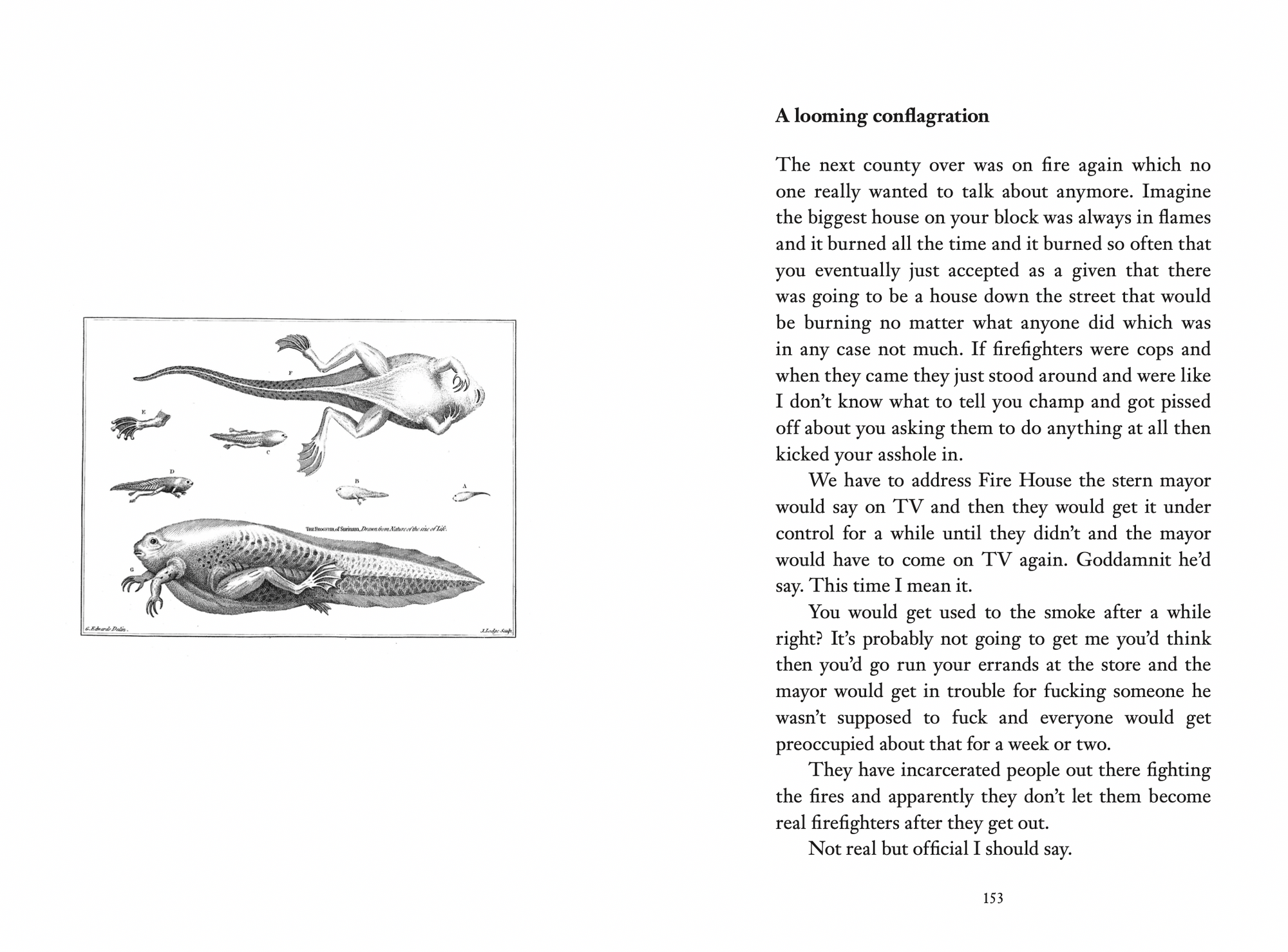
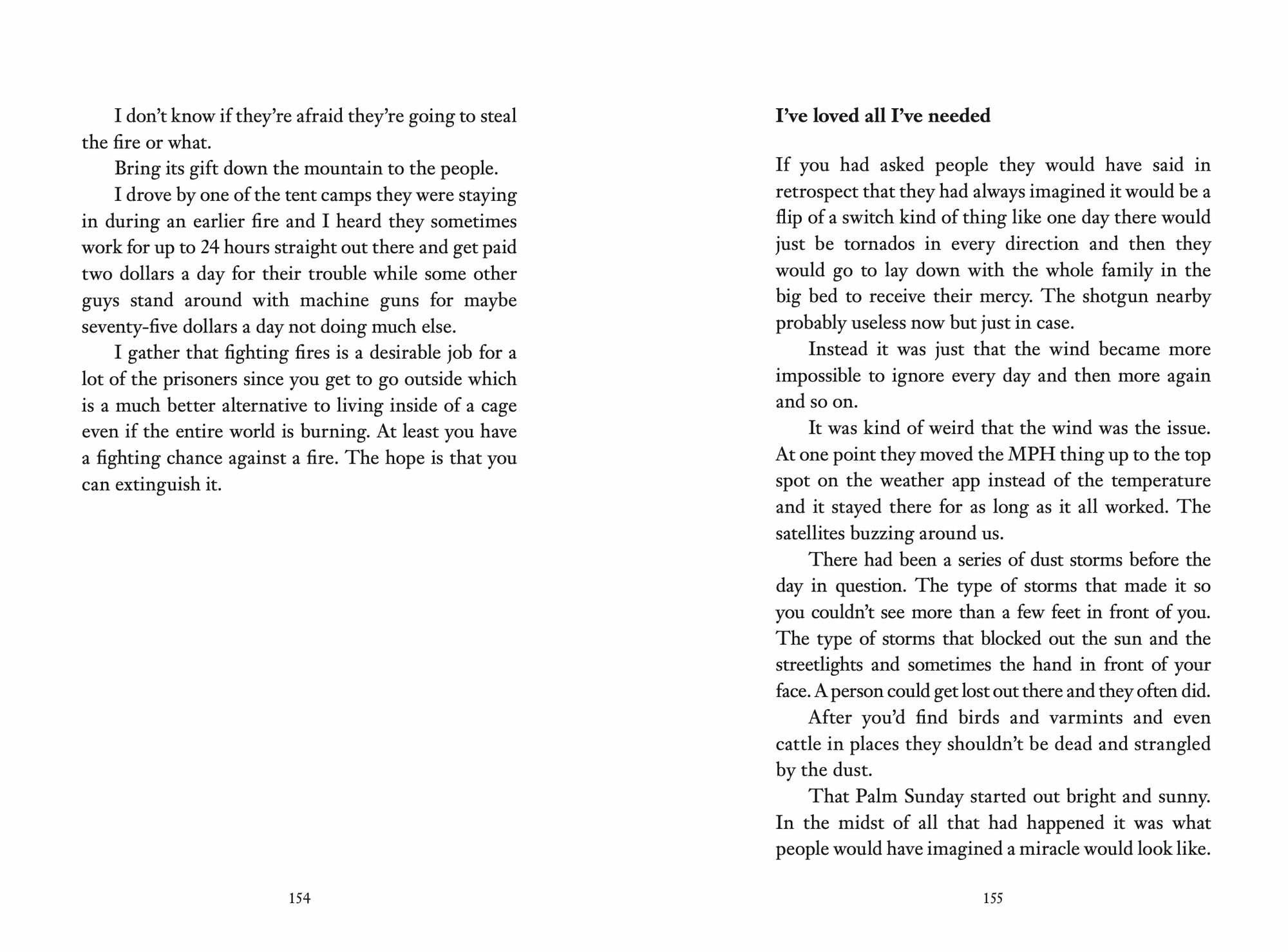
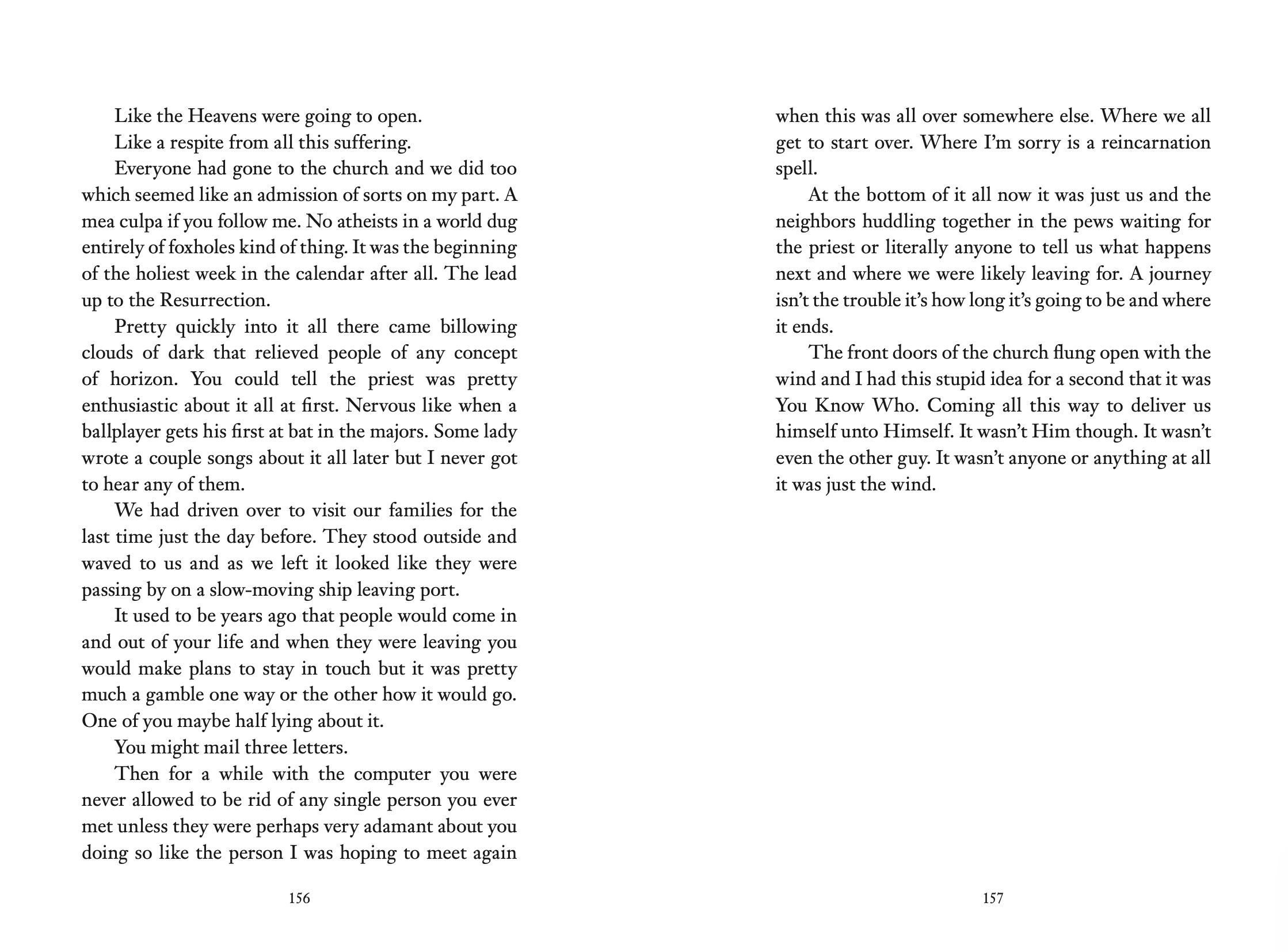

I don’t know that I’ve ever felt completely helpless before. Insurmountably so I mean. On a meteorological scale to be more specific. I’ve weathered my share of bad storms in my life – hurricanes and blizzards and heat waves and cold waves and ocean waves – but there’s always been a respite near enough at hand. Get to high ground. Get in the basement. Dry off. Get wet. Go inside and turn on the air conditioner. Wait it out.
Wait it out.
It’s passing.
It’s passing any minute now.
I’ve felt helpless on particularly horrific nights trying to come down as well come to think of it but that’s different. That’s not man versus nature that’s man versus self. Even as bad as those nights are though you know logically that it’s all eventually going to wear off. Almost always going to anyway. Sleep will come even if it takes forever. One kind of sleep or the other.
